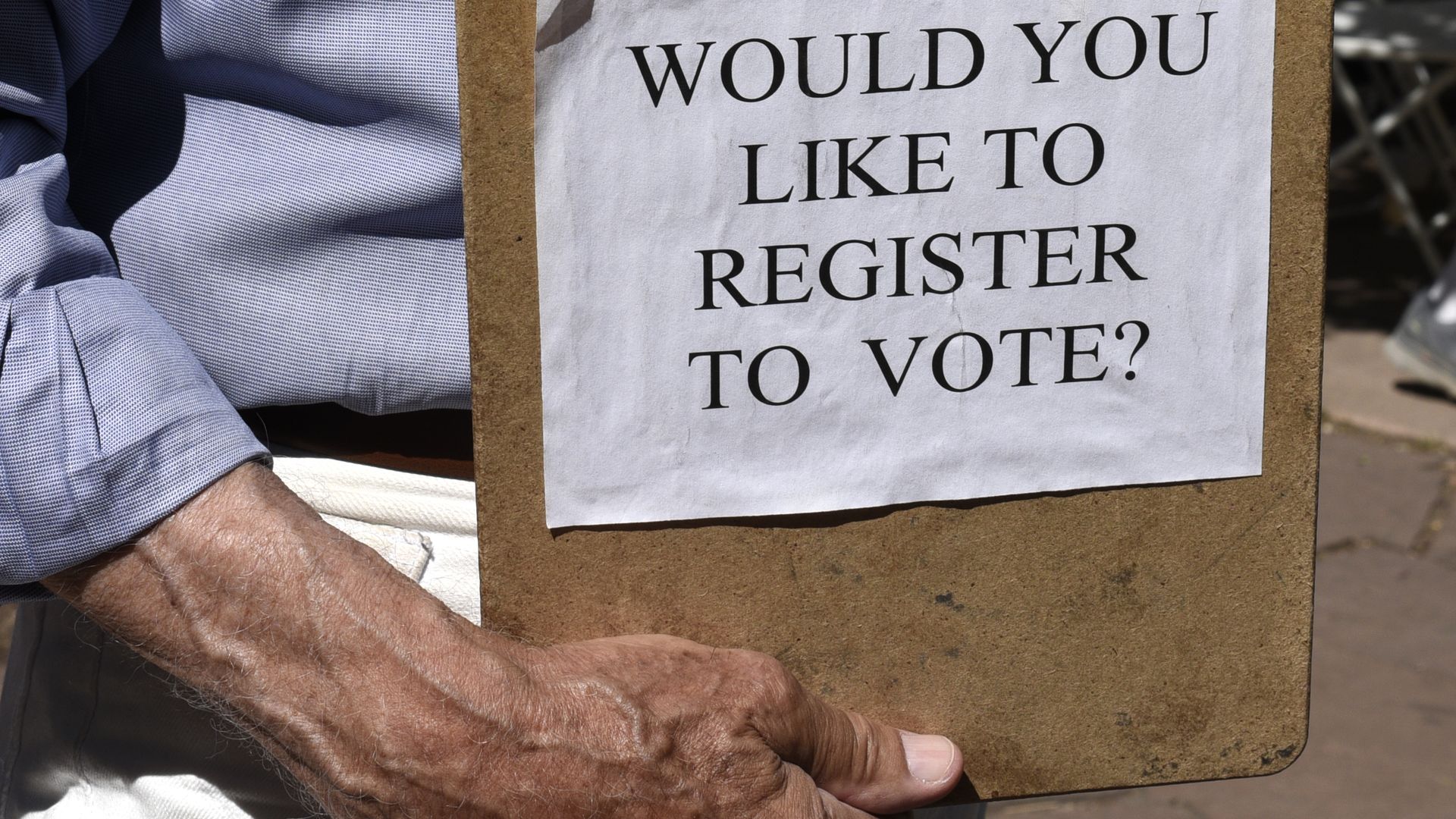Coronavirus stay-at-home orders crater voter registration efforts
Add Axios as your preferred source to
see more of our stories on Google.

A volunteer looks for persons wanting to register to vote on July 4, 2019 in Santa Fe, N.M. Photo: Robert Alexander/Getty Images
The coronavirus pandemic is scuppering usual "get out the vote" efforts, leading to fears that large swaths of Americans could miss out on this year's elections.
What’s happening: Advocacy groups typically target college campuses, churches, festivals, fairs and other gatherings to seek out people who have yet to register, but many of those places are now closed. Voter registration efforts have largely moved to the internet, but advocates question whether that will be as effective as the person-to-person pitch.
- Forty states allow people to register online, according to the Election Assistance Commission.
- Those that don't usually offer forms online that can be printed out and mailed in, but that still poses a challenge for people without internet or printer access.
- For some 28 million people in nine states, voters are required to register with a paper application.
Why it matters: "Limited voter registration is most likely to affect young people, minority groups, and naturalized immigrants, groups projected to contribute to record-high turnout in November," The Guardian writes.
- Voters aged 18 to 23 are expected to make up 10% of all eligible voters in the 2020 election. Many are likely to be first-time voters, and some may not know how to register to vote.
- Those who have moved and need to re-register, and the millions who have been kicked off voter rolls in states like Wisconsin and Georgia are also affected.
About 45% of voter registrations around the country are done at motor vehicle departments. Efforts to "flatten the coronavirus curve" have resulted in closing many motor vehicle department offices, as well as other public buildings where registration forms are often available.
Zoom in: States are starting to see the effects.
- New Jersey registered just 8,002 in April, a near-73% drop from the 29,000 it registered in April 2016.
- Texas, North Carolina, Maryland, Missouri, Virginia and Kansas all registered about half the voters they did for the same period in 2016, per the Atlantic.
The bottom line: The drops are more unsettling for Democrats than for Republicans, Ron Brownstein writes in The Atlantic.
- Although the coronavirus has curtailed the big Trump rallies that included voter registration, retail registration has been less a part of the Republican strategy.
Go deeper:
